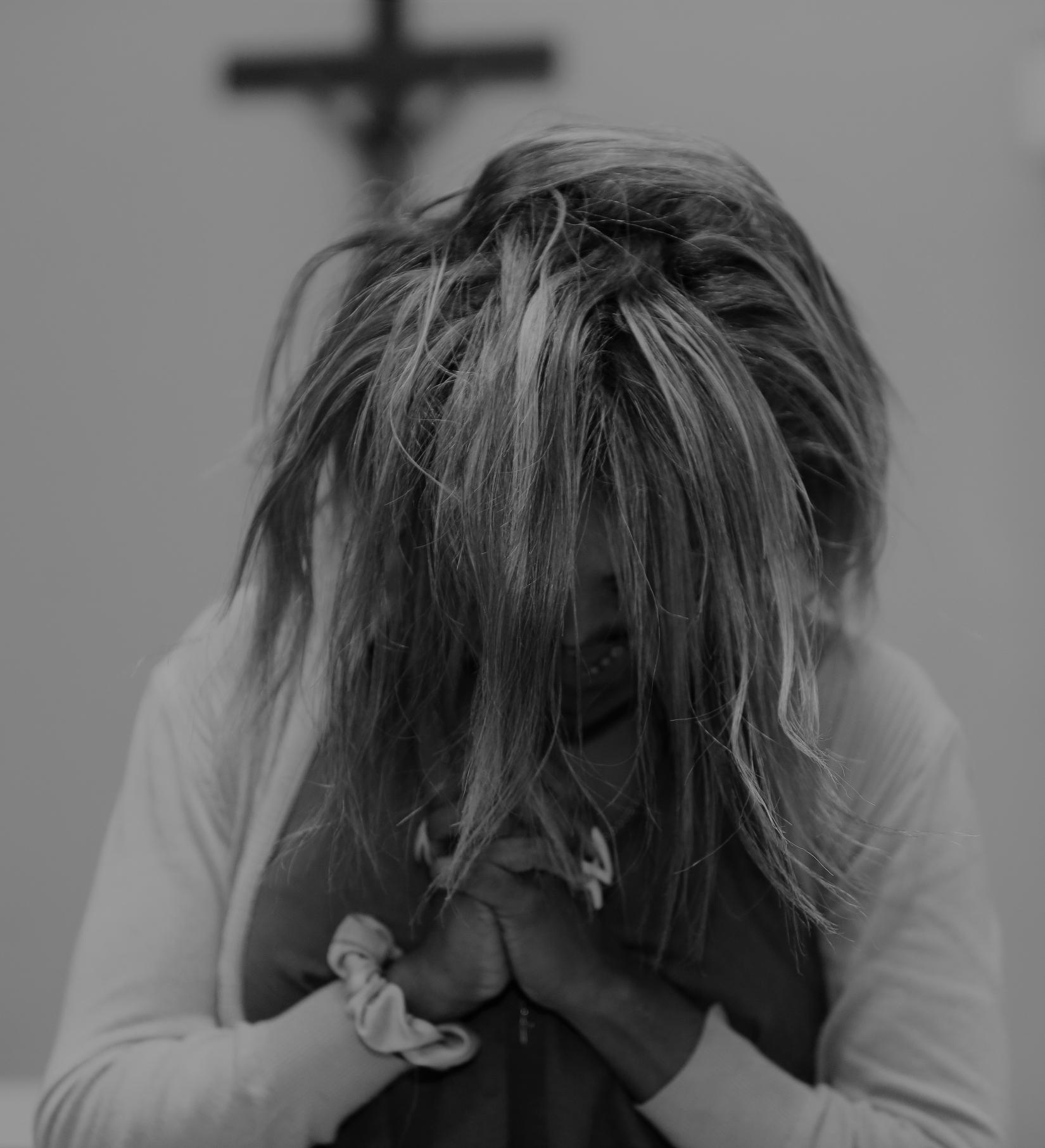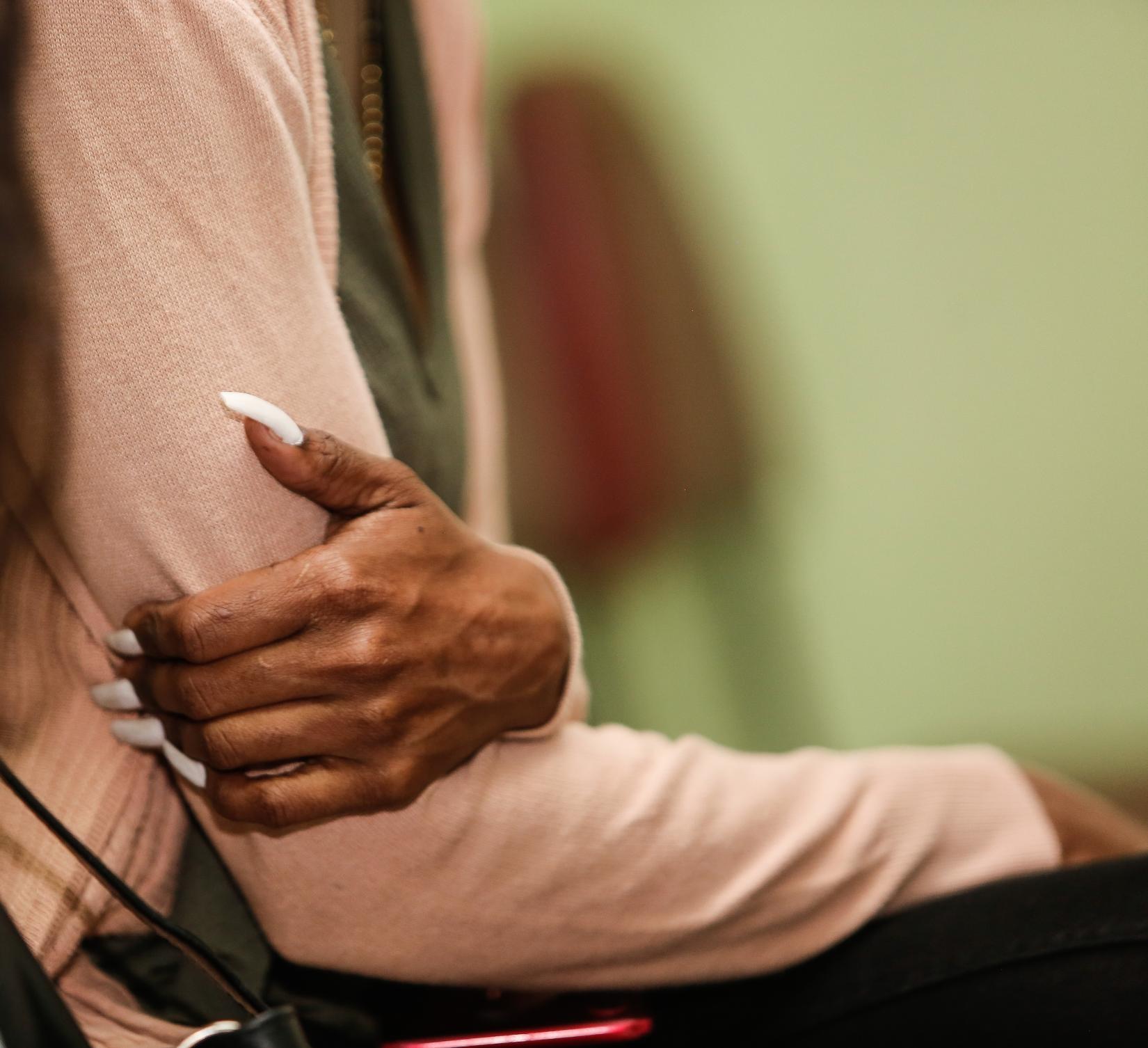For Vulnerable Women, Migration Can Be a Short-Lived Hope

As Manuela Molina* stepped out of a pirogue and onto a Chaguaramas beach on July 26th, 2019, panic turned to relief
The journey from Venezuela had been dangerous, but it was one she felt she had to make. For years, the economic situation in her homeland made it difficult for Manuela to earn a living. That task became impossible in 2019 when her children’s father abandoned them.
Living in Trinidad had never been Manuela’s dream. Now, the island offered the chance of a new beginning. However, the mother of three was unaware that the hope for a better life for her family would be short-lived.
Minutes after her arrival in T&T, her freedom was taken away. Manuela, who was promised a decent job, was forced into a van by Trinidadian men and driven to a secret location. “Some people kept us in captivity for about a month. They forced us into prostitution,” Manuela recalls. “In trying to escape, I ended up getting arrested. I was in prison.”

Manuela is a survivor of human trafficking, a crime that consists in people being tricked and exploited for profit. The International Organization for Migration (IOM), an organization affiliated to the United Nations, advocated on Manuela’s behalf to get her out of prison.
Even after Manuela regained her freedom, she struggled to escape the trauma. “This experience has been the worst of my life,” Manuela says softly, “I got help to see a psychologist through IOM. I had to focus on what was important because I have to provide for my children. I don’t want my children to have to take the same risks and end up in a similar situation as I did.”
Human trafficking disproportionately affects women and girls. The 2020 UNODC Global Report on Trafficking in Persons stated that 72 per cent of the globally-detected trafficking victims are girls under the age of 18 and that 50 per cent of victims are trafficked for sexual exploitation. In humanitarian settings, the risks of experiencing gender-based violence are higher for migrant women, and trafficking for sexual exploitation is a major form of gender-based violence that migrant women face. Many of the factors that increase women’s vulnerability to gender-based violence – poverty, gender discrimination, inadequate access to education, conflict and natural disasters – are also push factors for women leaving home in search of opportunities. This puts them at risk of falling prey to traffickers who often use violence and false information – such as fake offers for jobs and educational opportunities – to deceive victims.
Migrant women, trafficked from neighboring South American countries, have found themselves in Trinidad and Tobago being sexually, physically, and mentally abused, and in some cases imprisoned.
According to the IOM office in Port of Spain, trafficking in persons and gender-based violence are both serious violations of human rights which affect the wellbeing of people and require commitment by all to help prevent and respond to the two phenomena.
“While the government has demonstrated its commitment to address the issue, there should be an increase in its efforts to investigate, prosecute, and importantly convict traffickers,” says Jewel Ali, Head of the IOM Office in Trinidad and Tobago. “IOM will continue to cooperate with its partners, learn, apply and share best practices, as well as be innovative in its solutions to provide protection and assistance to victims of trafficking.”
From November 25th to December 10th, the UN commemorates the 16 Days of Activism against Gender-Based Violence - under the 2021 theme, “Orange the World: End Violence Against Women Now!” IOM is renewing the appeal to people who are aware of incidents of gender-based violence to report them to the authorities.
IOM is also encouraging victims to reach out for help. The UN Migration agency says many victims of trafficking suffer in silence because they have not been formally identified.
“Most of the victims are foreigners and because of that, they face language and cultural barriers, as well as other issues, such as lack of documentation that becomes an obstacle to access psychological services,” Ali explains.
The Covid-19 pandemic has introduced new layers of vulnerability, according to Manuela. “There’s a need for more work opportunities and more access to psychological support because a lot of women are in the same situation and need help psychologically to work through all these difficulties in order to survive,” she says.
She believes agencies like IOM play a crucial role in helping migrants in need get by. The IOM offers a variety of support to victims of trafficking, including accommodation, emergency assistance, medical health services, vocational training and psychosocial support.
“The salaries we earn as migrants are often less than minimum wage, so the cost of living is difficult to meet. The support makes a difference because if I get rent or food support, I can use the remaining money to take care of another need for my children,” she says.
The traffickers, who subjected Manuela to exploitation, physical and mental abuse, remain free. Manuela wants them to know that she survived. “How could you feel good in your heart, knowing you are living life off of the suffering of others?” she asks them. “I want to be able to study and do more with my life. To have real possibilities. For my children, I want them to become good people and to have a better life.”

*To protect her identity, the survivor’s name was changed, and certain details of her story were omitted.


